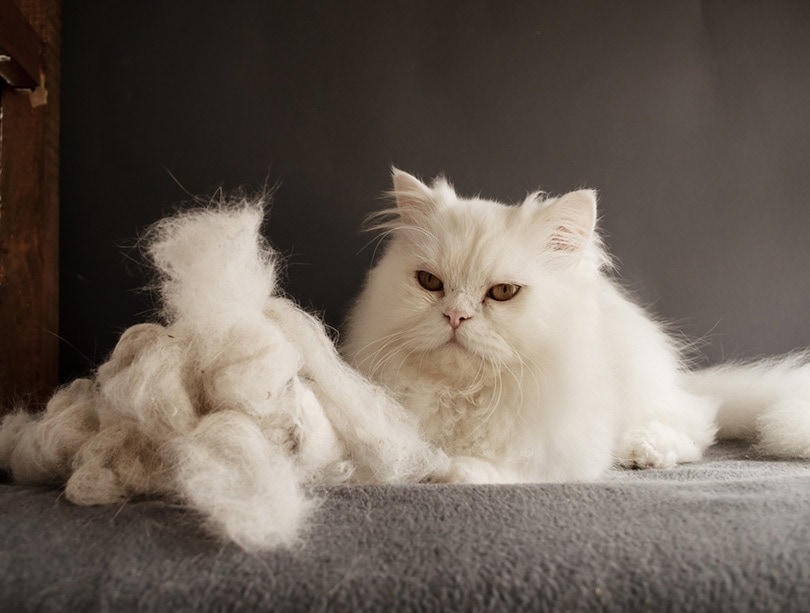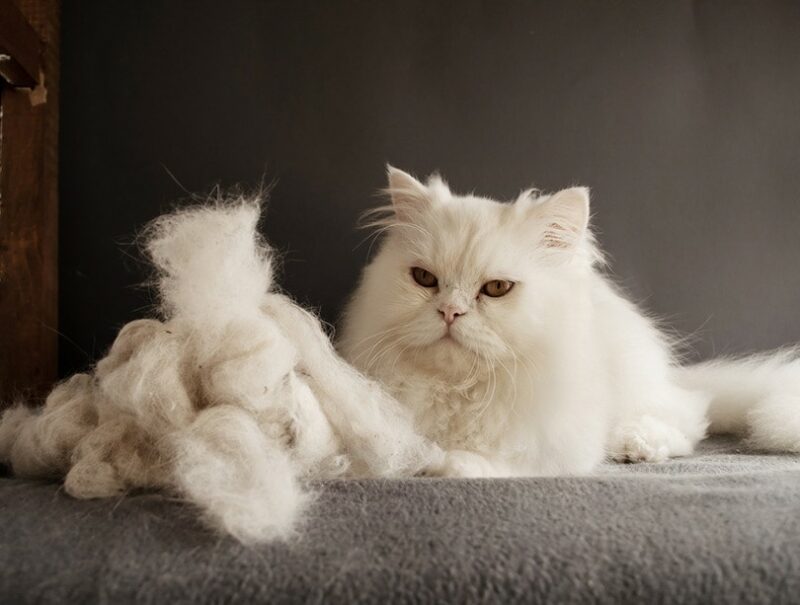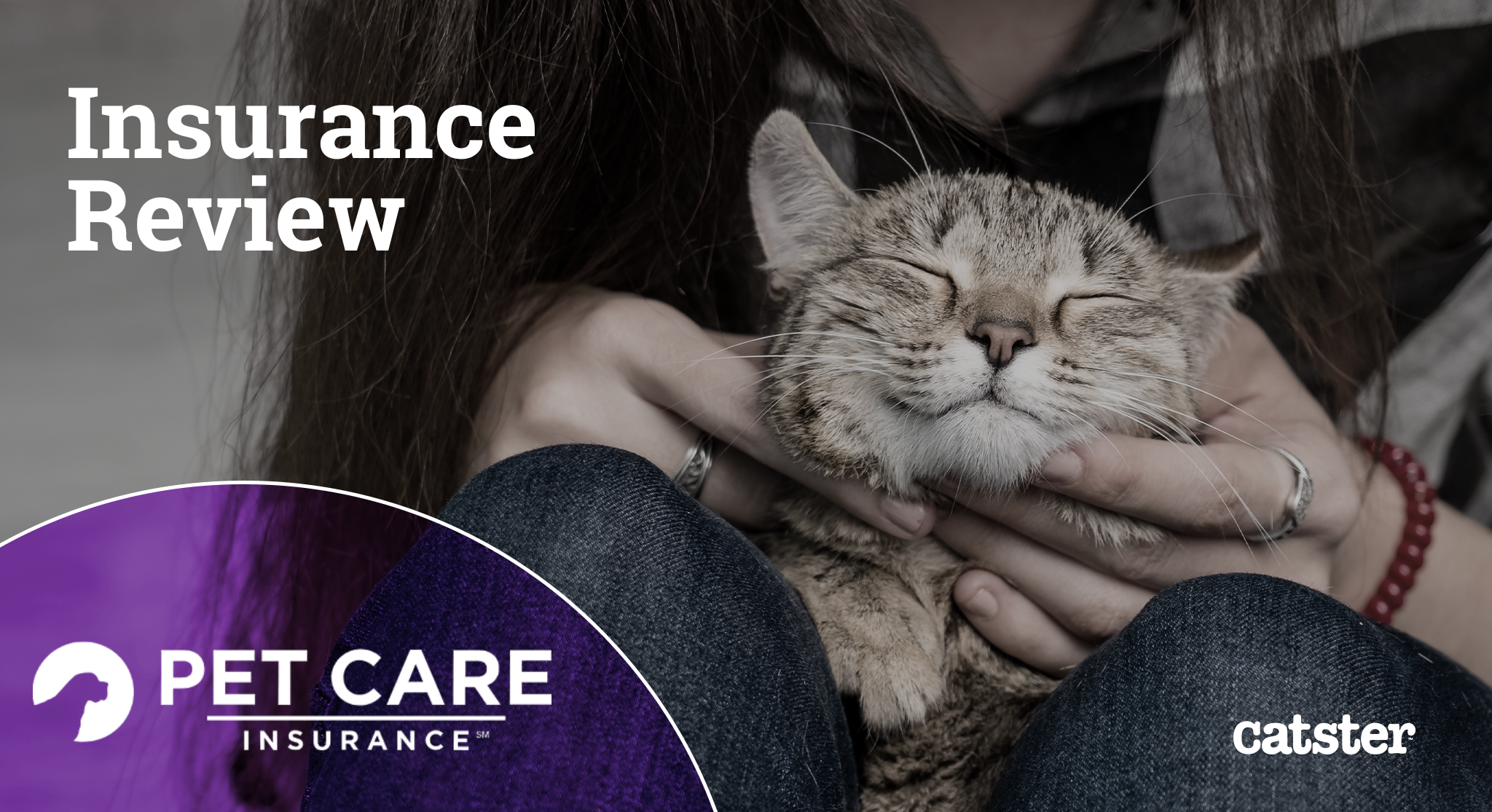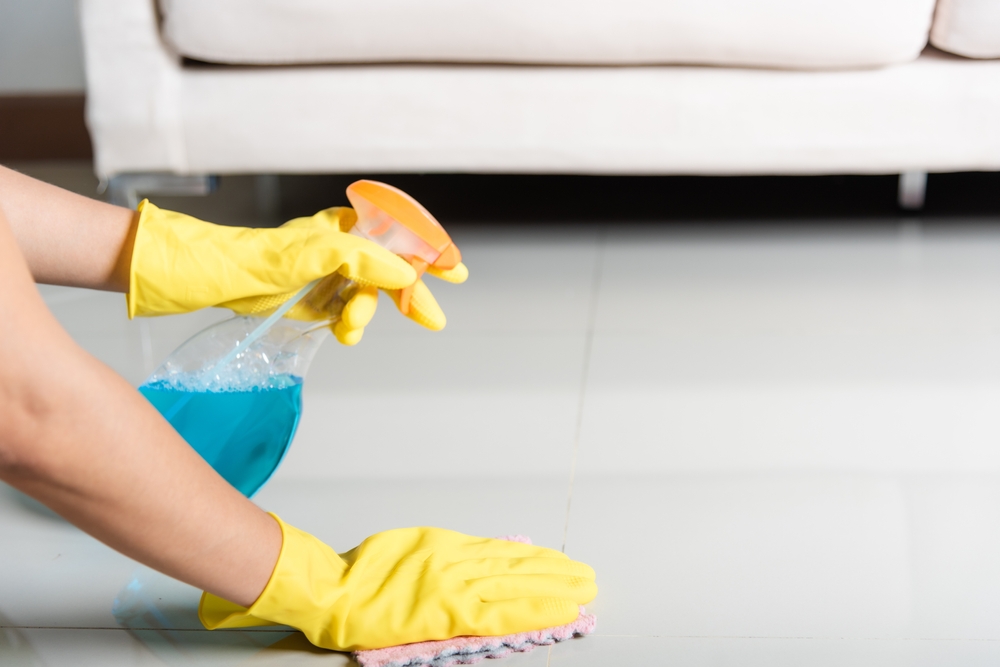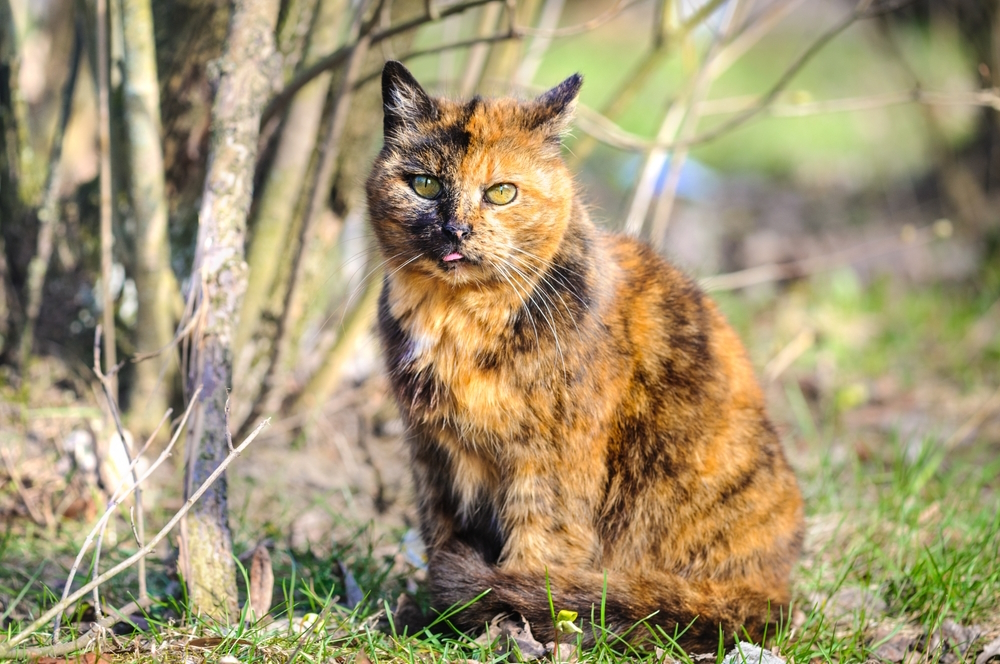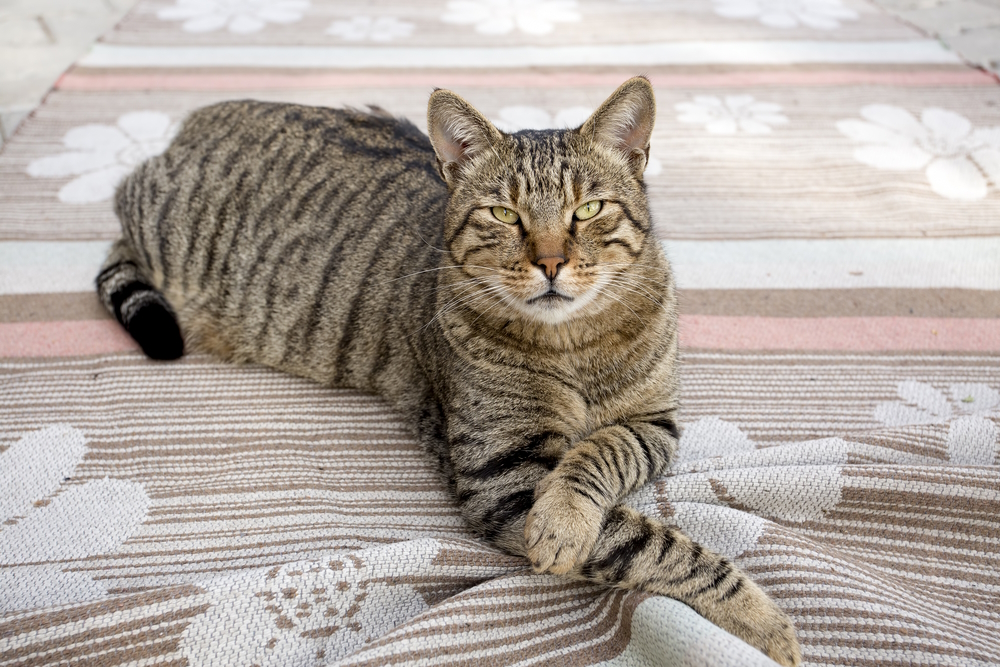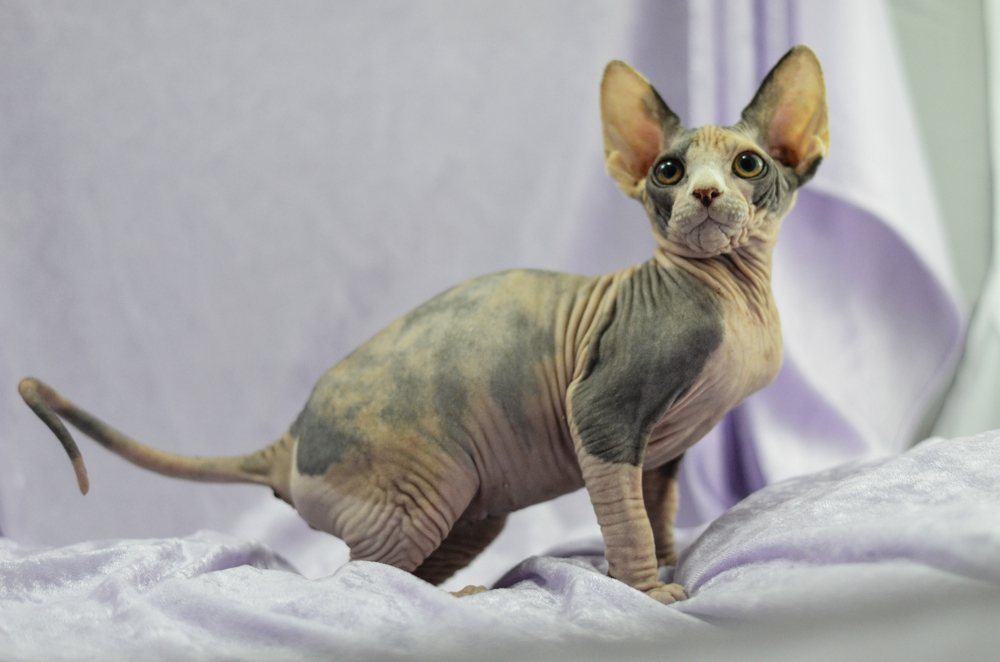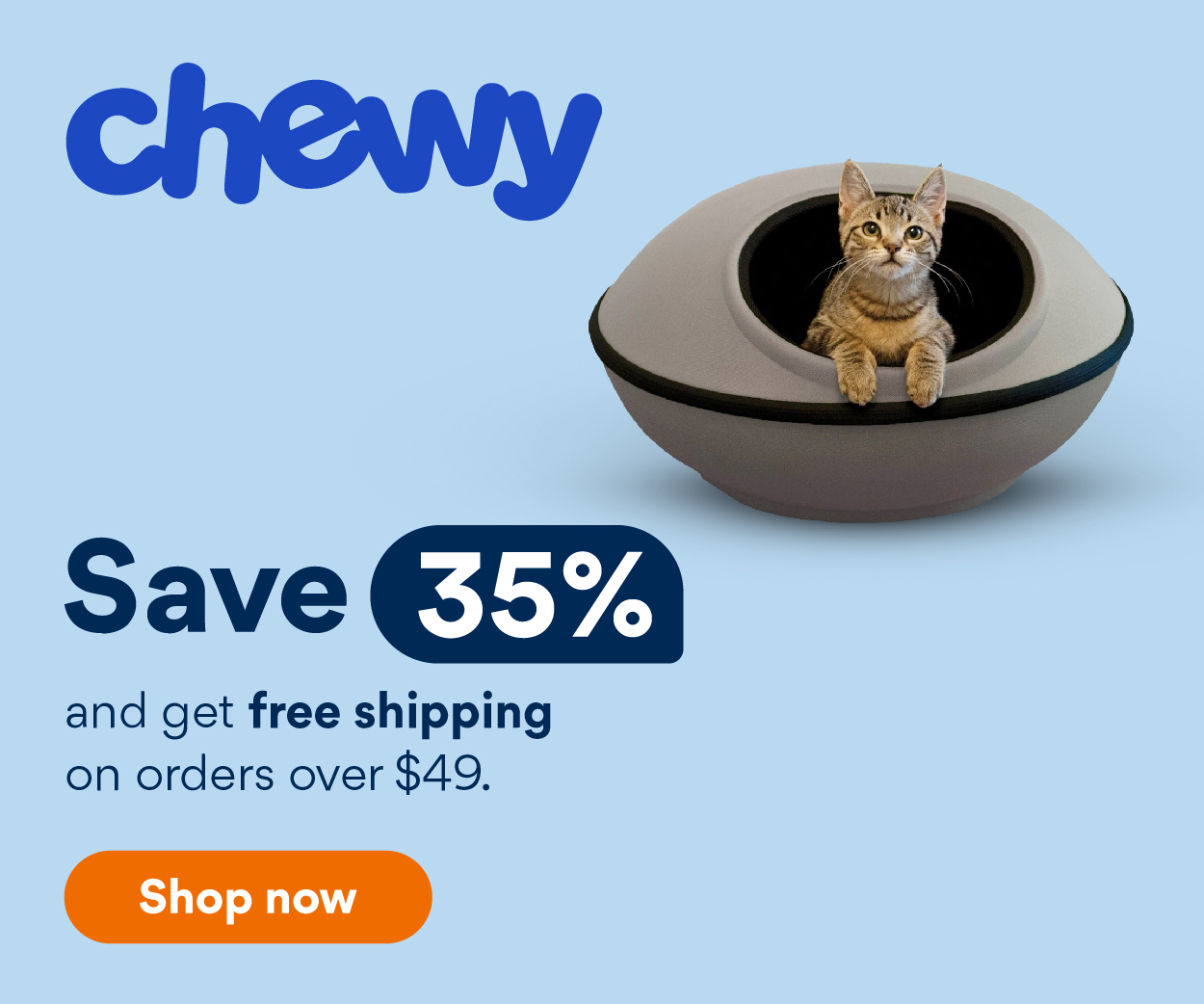Cat hair has a way of finding its way all over everything in your home. Whether your cat has touched the item or not, it probably has cat hair on it. Cat hair is lightweight and can easily get moved around by airflow, leading to it landing on everything from clothes to curtains to hard surfaces. There are multiple ways you can clean up cat hair and keep the hairball tumbleweeds in your home to a minimum, though!

The 10 Ways on How to Clean Up Cat Hair
1. Lint Roller
The humble lint roller is one of the easiest and fastest ways to clean up cat hair, especially from fabrics. Old school lint rollers are made of fabric, while the more modern lint rollers are made from a special sticky tape with the sticky side facing outward. They’re extremely easy to find in most stores, including convenience stores. Some companies have even started manufacturing lint rollers that are made specifically for cleaning up pet hair.
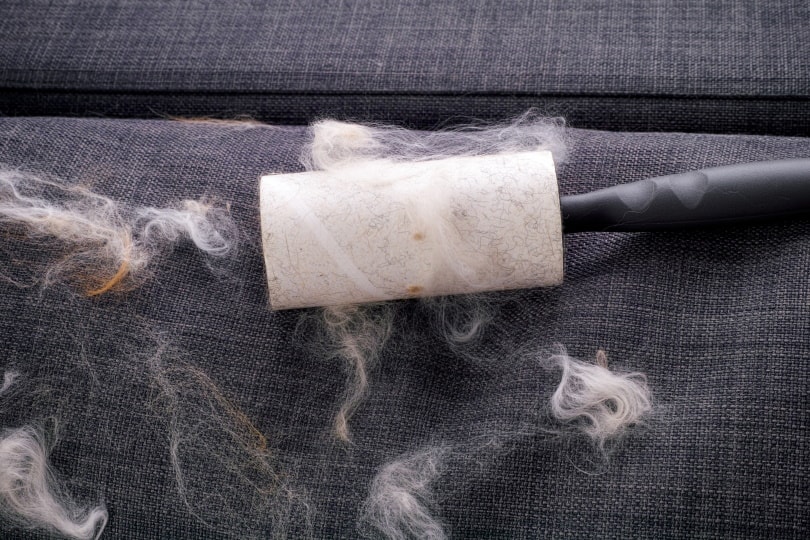
2. The Dryer
Tossing your fabric items that have cat hair on them in the dryer is a super easy way to remove cat hair. If you put a dry item in the dryer and run it, the hair will usually get pulled from the item and into the lint trap. If you add a dryer sheet, especially one that’s formulated for dealing with pet hair and odors, then you’ll likely have even more success in removing the cat hair. Just don’t forget that some delicate fabrics shouldn’t be put into the dryer, even if they’re dry and it’s only for a couple of minutes.
3. Washing and Drying Products
There are multiple products on the market now that are geared toward removing pet hair. Some of these are sticky silicone objects that can be thrown right into the dryer with your clothes, and others are made to be added to the washing machine to help trap loose hair and keep it from settling onto other clothes or clogging the drain. Since there are multiple products available now, it’s ideal to spend time reading reviews to ensure you’re getting a product that other people have had success with.
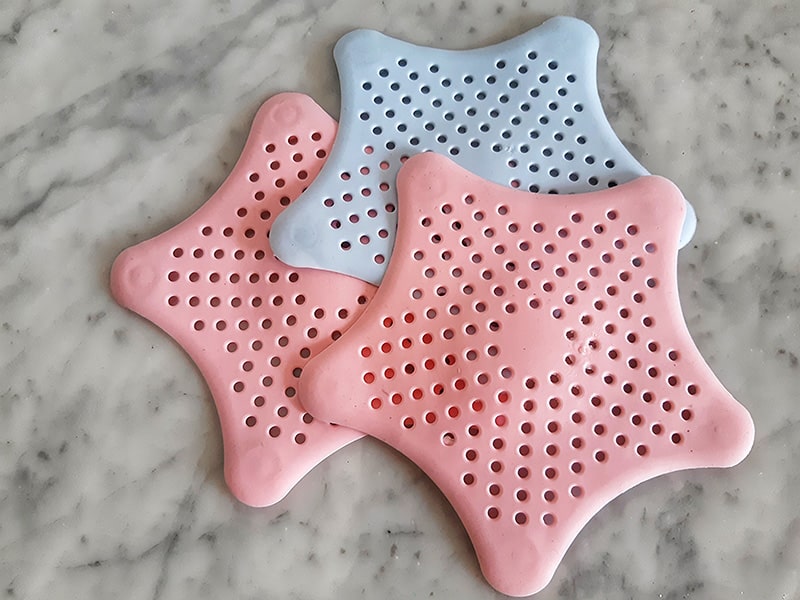
4. White Vinegar
White vinegar is kind of a magic ingredient in the cleaning world. It’s extremely inexpensive, easy to find, and it serves multiple purposes. White vinegar can be added directly into your washing machine’s cycle to help loosen the cat hair from the fabric, making it easier to wash away. As an added bonus, white vinegar also does a good job of eliminating unpleasant odors, which can help get the “pet” smell out of your clothes as they wash.
5. Damp Microfiber Cloth
Microfiber is a great fabric for picking up things like pet hair, and it can be used on its own to do so. However, if you use a damp microfiber cloth to wipe up cat hair, you’ll likely have more success in removing the hair and the damp microfiber will reduce the risk of you unintentionally loosening the hair only for it to float away and land elsewhere.
Damp microfiber will catch hair and dust, making it easier to clean up. You can also add a small amount of white vinegar to the water you dampen your microfiber with, which can make it more effective for removing cat hair from fabric surfaces.
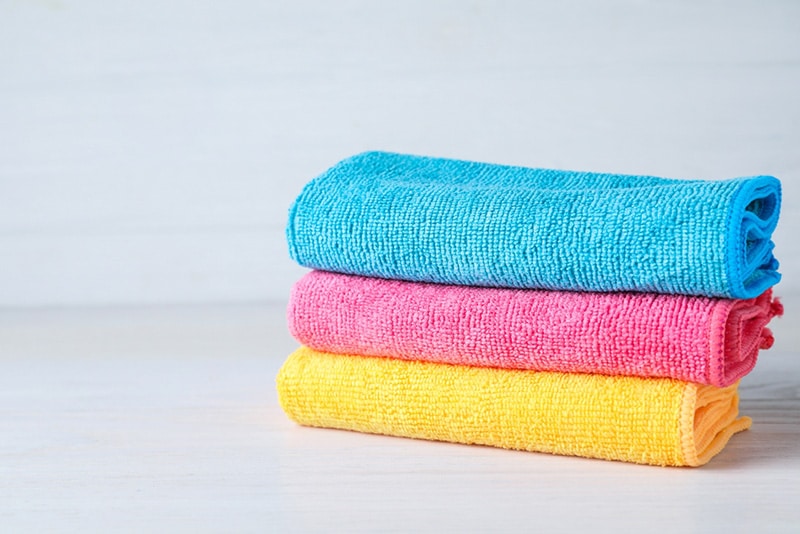
6. Dusting and Sweeping Pads
Swiffer is the brand that we all know, but most stores also have store-brand versions of sweeping and dust pads as well. These pads are made to grab loose hair and dust, as opposed to simply moving all of it around and not cleaning up the mess. These pads are an excellent option for sweeping hard floors and dusting hard surfaces, including fan blades, furniture, and lamps. If you’re dealing with lots of cat hair, you may need to use multiple pads to clean up the mess.
7. Carpet Rake
Carpet rakes and rubber brooms are becoming more popular for cleaning carpets and some fabric surfaces. These products are used much like you’d use a rake to create a leaf pile. The rubber helps to grab the hair, pulling it all out of the fabric and allowing you to add it to a single pile that can then be vacuumed or picked up. These rakes may be difficult to find in some stores, but they’re widely available online these days.
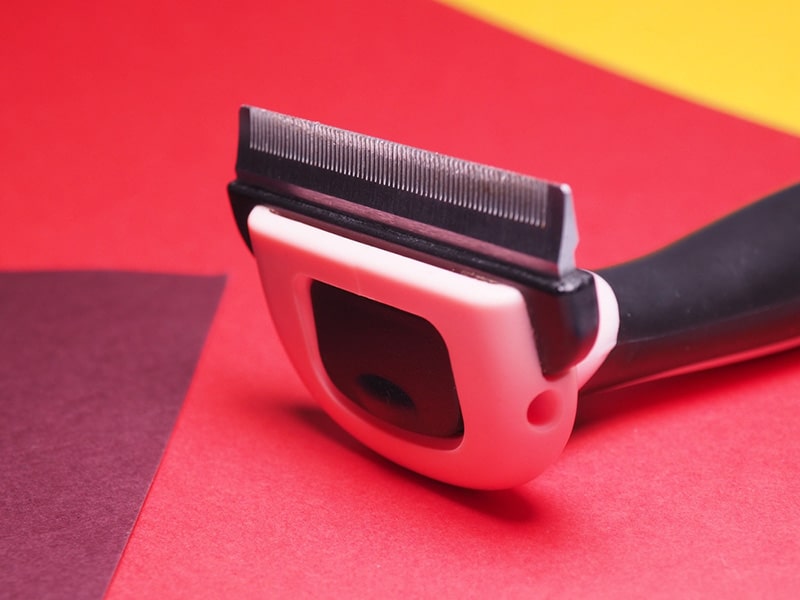
8. Vacuum Cleaner
The most obvious way to clean up cat hair is to use a vacuum cleaner. Vacuums that are created to deal with pet hair are ideal for this job, but any vacuum will work. Most vacuums include multiple attachments that can be used to clean up pet hair. Some even have rubber ends that function similarly to a carpet rake to loosen the hair and then vacuum it up. Just remember to clean and maintain your vacuum to prevent bad odors and clogs.
9. Pet Hair Removers
There are multiple pet hair removers on the market that are similar in function to lint rollers or carpet rakes. They often consist of rough mesh, Velcro, or fine metal. These products can be used on many types of surfaces, with the rougher materials being excellent for use on carpets and furniture.
Some of these products are silicone covered with a sticky residue, similar to a sticky lint roller, but they can be washed, dried, and then used again and again. Make sure to follow the instructions for use with the product you select since you may cause damage to surfaces if you use the product improperly.
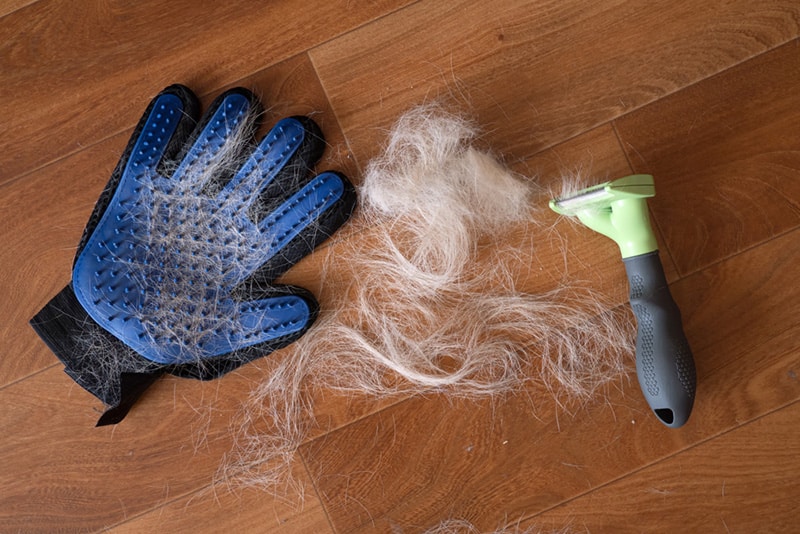
10. Brushing Your Cat
Brushing your cat isn’t going to clean up the hair that’s already in your home, but if you can keep the hair to a minimum on your cat, you won’t need as much help cleaning up. Brushing your cat regularly can reduce the loose hair and dander they’d otherwise be dropping all over your home. It can also maintain the health of their coat and skin.
If your cat seems to be shedding excessively or is developing bald patches, consult your vet. This is abnormal and can be caused by parasites, behavioral issues, and medical conditions.
Conclusion
Cat hair can be quite pesky, and if you enjoy wearing clothes that are free of cat hair, it can be difficult to manage. Finding the right combination of products for your home can be a lifesaver. You’ll need to stay on top of things to keep the cat hair in your home to a minimum, though. If you allow it to get out of control, it’ll be even more difficult to clean up!
See also:
- Do Cats Revenge Poop? Vet-Reviewed Behavior Facts
- 10 Reasons to Take a Pet First Aid Course (Vet Approved)
Featured Image Credit: Doucefleur, Shutterstock

